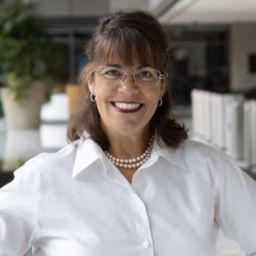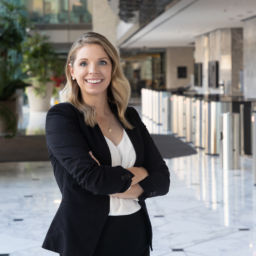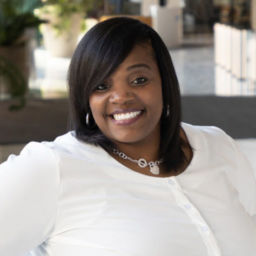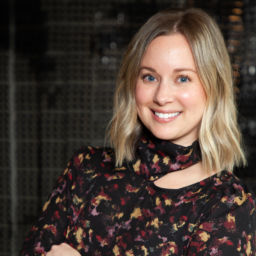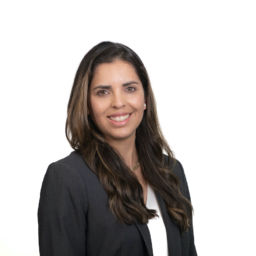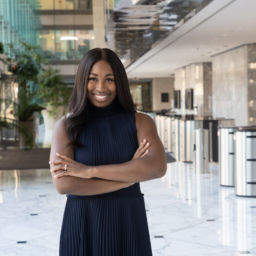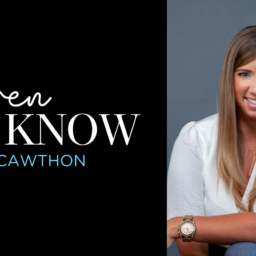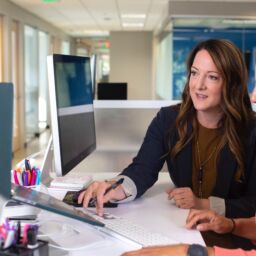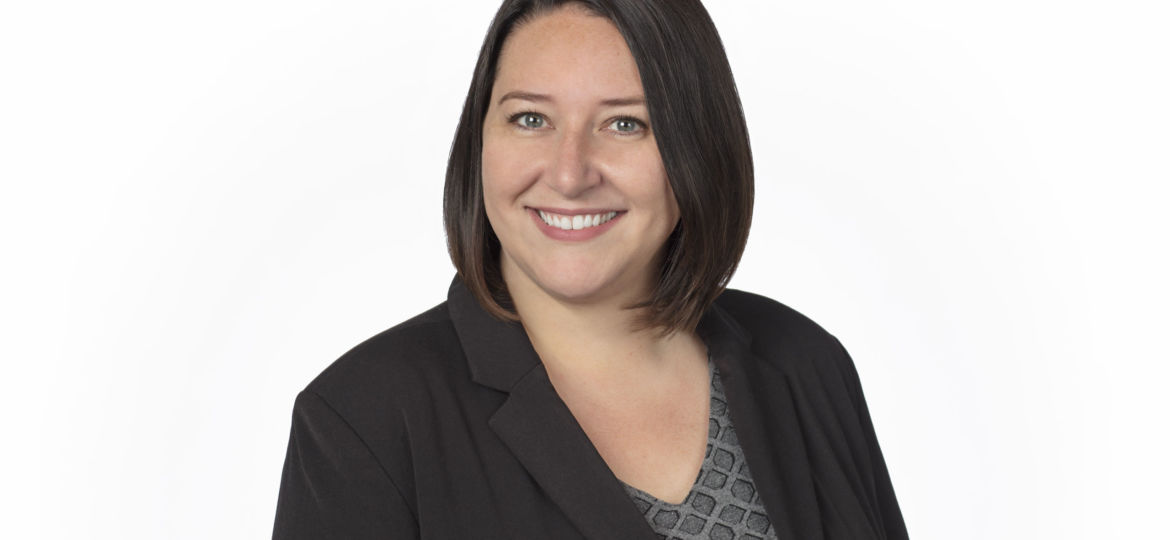
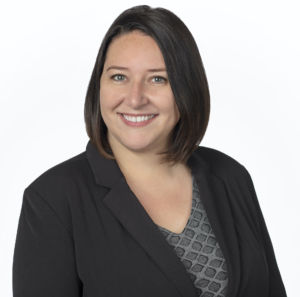
Aletha Dunston grew up in Whiting, Indiana, a small factory town sandwiched between an oil refinery and a steel mill. While “The Region” may not come to the forefront of people’s minds when thinking of quaint, traditional developments with bustling amenities, it presented Aletha and the rest of her neighbors with an experience one might be surprised to find so close to Chicago. It was a classic downtown main street filled with neighborhood-owned businesses energized by diverse local owners and the community.
“It was gritty, and wasn’t very fancy. But everyone did their best to maintain their modest, older homes and put flowers out on the stoop, even on meager earnings. We walked everywhere and were able to notice small changes. Older, first-generation Americans were always ready to remind you in their native languages to take off your hat in a restaurant, to point out that your lawn needed attention, or to bring you vegetables from their garden. I know this sounds like the 1950s, but make no mistake, this was the mid-90s,” remembers Aletha.
To a passer-by stopping at the local restaurant for a quick bite, it almost felt like one was displaced into a town untouched by time in the town anchored by factories and Lake Michigan. But to Aletha, the town offered plenty of amenities and opportunities to stay busy.
“It was a very blue collar upbringing with all of the stress and financial insecurity that can come with it and I learned early on to focus on what was within my control,” shares Aletha. “I focused on school, sports, clubs, work, and friends — anything to keep busy and keep moving. I saw college as a way to a better life at an early age, and even though no one in my family was familiar with how to get there or apply for aid, it was always the North Star, and we figured it out together.”
As a student, Aletha thrived in industrial and art classes, eventually finding her way to drafting. She was able to attend what would be the most pivotal experience toward her future, an architecture summer camp for high schoolers at Ball State University. After the week-long camp, much of what Aletha was drawn to in school and at home suddenly connected.
“I didn’t realize it, but I was bitten by the city planning bug early. I spent hours as a kid at the library looking up magazines of house plans and designing my ideal home from the bits and pieces I liked from different designs, sometimes down to the furniture. I obsessed over the detailed maps in the National Geographic magazine collection. I read books about the weirdest, must-see tourist attractions throughout the world. I copied detailed routes from the atlas to ensure that I would see the most places possible on trips I dreamt of taking someday,” says Aletha.
With this foundation, Aletha headed to The Ball State College of Architecture and Planning. Aletha and her peers spent their first year in the program exploring projects in architecture, urban planning, and landscape architecture. At the end of their first year, Aletha had found her people and her place. She also discovered that her interest in design and how people interact with their environments had a field of its own — Urban Planning and Development.
After graduation, it was time to unleash her talents on the world, and as she expanded her worldview, her upbringing and hobbies began to mean so much more.

“Once I had the opportunity to start exploring the rest of the country and world, I quickly learned how lucky I was to be raised in our traditional ‘little city by the lake.’ I was exposed to an abundance of diverse cultures that were attracted to the area on the promise of a good job and a good life. It sparked a desire in me to help others find a similar opportunity to live in safe, walkable neighborhoods with access to good education and opportunity — somewhere they could feel like they belonged,” shares Aletha.
It’s an opportunity that everyone is deserving of — a safe place to live, grow, and thrive. But that dream is not always available for a myriad of reasons. However, those in urban planning and development like Aletha can make a greater impact and have a generation-changing influence when they use their talents for their community.
Since graduating from Ball State, Aletha’s crafted a career that combines the best of what she learned in the academic realm with her lived experiences throughout Indiana and beyond.
Aletha’s credentials are impressive, and they reveal a common theme — Aletha arrives at a place rife with (sometimes hidden) opportunities, collaborates with stakeholders, and drives forward meaningful change.
Her career kicked off by working for more than a decade with rural communities throughout the state on a myriad of issues — from strategic planning, securing grants and funding, and imagining placemaking projects that tell a story.
Most recently, Aletha ushered forward the final phase of the transformation of Fort Harrison, now known as Fort Ben, on the northeast side of Indianapolis. As a component of the former military base’s decommissioning in the 1990s, the Fort Harrison Reuse Authority was established to guide redevelopment of the 2,500-acre base. Responsible for making sense of what was left after the initial phases of redevelopment, Aletha got to work.
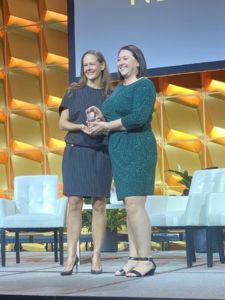
And in just four years, she’d worked alongside residents, land owners, and businesses to make sense of the reimagined space in a way that honored history while serving the people who inhabit it. After securing over $120M in investment in the Lawrence Township community and another $135M of projects in play, Aletha found herself called to her next challenge: serving as the Director of Develop Indy, the economic development organization for the City of Indianapolis and Marion County.
“I’ve been lucky to experience a unique perspective of what it means to be a Hoosier. I grew up on stoops and on beaches in view of smokestacks in Lake County, worked with more than 100 rural Indiana communities facing unique issues, and now have the opportunity to attract investment and talent to Indianapolis. I hope to find a way to share these diverse experiences to help connect the dots for more prospective Hoosiers to find a path to success here.”
There’s been a shift in how communities are built, how companies decide where to invest, and what residents expect from the space surrounding where they lay their heads and spend their hard-earned dollars. And it’s planners, developers, and forward-thinking public servants whose willingness to listen and create long-term symbiotic relationships that can make meaningful, lasting change. Change that creates more economic equality and access for all.
“Companies once made decisions based on incentives and tax breaks. Now they begin the conversation asking where their employees will come from. This is true across all industries. For Indy to thrive, we need to deepen our bench of talent. And people decide where they want to live based on schools, safety, amenities, and the ability to form real connections.”
The talent scarcity impacting companies across manufacturing, transportation, education, and more is no laughing matter, so making mindful investments in our community is not only a good idea — it’s a crucial business decision.
“That connection to the community is why I love the work I am doing at Develop Indy,” Aletha says. “Residents wake up every morning, commute to and from an office, enjoy a lunchtime stroll around our Downtown monuments, and end their day with an after-dinner bike ride on a local trail. Others are out of the house before their kids are awake to walk miles to work to suffer injustices for cash tips. At each point throughout their day, both are engaging with our built environment and economic ecosystem, and we feel honored to have a voice in the room as we make decisions that continue to shape Indianapolis for the next generations of residents in an equitable way.”
And individuals have a role to play in shaping the future of the world around them, even if they aren’t tasked with signing checks or pitching to boards of directors. Small changes can improve a community and its quality of life from the ground up.
“Join the neighborhood group or nonprofit. Show up and donate your time, talent, or treasure. Help support the doers. Mentor and sponsor the rising stars. Show off your favorite places to friends and family. Invite new faces to sit at important tables. Help others fall in love with Indianapolis.”
But Aletha’s not all business, all the time, even if her accolades might make her appear otherwise. A self-professed “professional plus one,” Aletha is keen to say “yes” to new experiences large and small. Want to check out a new venue? Have a game or event ticket and want someone to go with you? Need a new restaurant buddy? Aletha is your go-to companion.
“I am most energized and engaged when I travel and explore new places. I appreciate small differences and often bring back a new approach to a standing issue at home. But personally, I enjoy that travel reminds us that we are part of something larger than ourselves and our daily challenges. I would love to live abroad and be immersed in a new culture at some point in my life. Ideally, I will find a way to do so before my hip or knees give out so I can still take the historic stone steps around the corner to see where they lead,” Aletha shares. “But for now, I am excited to keep discovering the hidden gems of Indianapolis.”
Aletha’s penchant for travel is well-paired with her love of books, of which she admits to having more than she could read in a lifetime. And perhaps her natural curiosity, thirst for knowledge, and willingness to view things through multiple lenses make her just what Indiana needs: a champion with an eye for the future.
“I may be slightly addicted to potential. Whether that be purchasing the worst house on the block, screaming to be given a new life, a struggling downtown or neighborhood, or a piece of furniture on the side of the road — if I find it and see the potential, I will give it my best shot! And I think Indy and our neighborhoods have a ton of potential.”
Created in partnership with Indy Chamber.
Natalie Derrickson is a writer and communications strategist who will always bet on the grit within Indiana’s communities. You can connect with her on Instagram, Twitter, LinkedIn, and her website.
All of our content—including this article—is completely free. However, we’d love it if you would please consider supporting our journalism with an Indy Maven membership.









